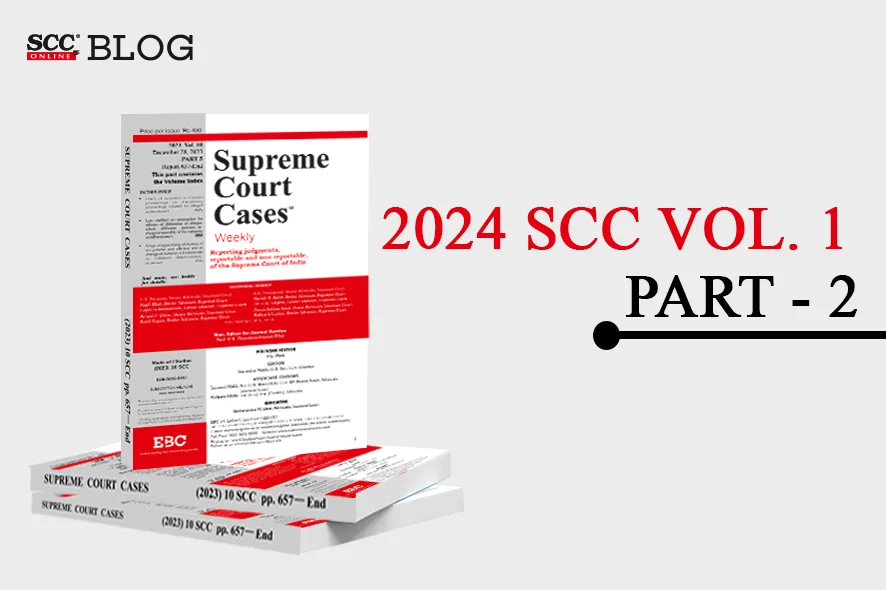Reservation, Concession, Exemption, Relaxation and Affirmative Action — Caste/Tribe Certificate: Matters to be considered while determining whether cancellation of caste certification is warranted, explained. [Darvell Investment & Leasing (India) (P) Ltd. v. State of W.B., (2024) 1 SCC 165]
Service Law — Dismissal/Discharge — Judicial review/validity — Interference when warranted: Writ court’s power to review order passed by disciplinary authority is only limited to examine legitimacy of decision-making process and to determine whether material evidence has been considered by disciplinary authority in reaching its conclusions. [Ram Lal v. State of Rajasthan, (2024) 1 SCC 175]
Election — Democracy and General Principles — Criminalisation of politics/Electoral Reform — Criminal cases against elected MPs and MLAs — Expeditious disposal of: Directions issued to all High Courts to exercise power under Art. 227 of the Constitution and Designated Courts conducting trial of subject cases. [Ashwini Kumar Upadhyay v. Union of India, (2024) 1 SCC 185]
Kerala Building Tax Act, 1975 (7 of 1975) — S. 3(1)(b) Expln. — Expression “charitable purpose” — Consideration of, as being inclusive of “relief of the poor and free medical relief” and not exhaustive: S. 3(1)(b) Expln. [now Expln. (1)] indicates that for the purpose of the sub-section “charitable purpose” includes “relief of the poor and free medical relief”. Therefore, S. 3(1)(b) Expln. indicates that the meaning of the expression “charitable purpose” is not confined to relief of the poor and free medical relief as is evidenced by the use of the expression “includes”. When a statute uses the expression “includes”, it is a well-settled principle of interpretation that the elucidation is not intended to be exhaustive. [Lisie Medical Institutions v. State of Kerala, (2024) 1 SCC 200]
Income Tax Act, 1961 — S. 37(1) Expln. 1 and S. 115-BBE and Ss. 68, 69 and 69-A to 69-D — Losses allowable as business losses: A penalty can never be understood as a commercial expenditure/loss for the purpose of the business nor a disbursement made to earn profit. A penalty or a confiscation is a proceeding in rem, and therefore, a loss in pursuance to the same is not available for deduction regardless of the nature of business, as a penalty or confiscation cannot be said to be incidental to any business. [CIT v. Prakash Chand Lunia, (2024) 1 SCC 204]
Electricity Act, 2003 — Ss. 63 and 79 — Interference with terms of PPA — Power of Commission/Tribunal in competitive bidding cases where rates are approved under S. 63 and PPA is entered into — Restrictions on: Rewriting of contract and creation of bargain by Commission/Tribunal is not permissible. Such residuary powers to act which varies the written contract cannot be located in the power to regulate. In a matter where the parties have entered into a contract with express provisions, the Tribunal would not have power to disregard the express provisions of the contract on the score that as it turns out that with passage of time and even change in circumstances, it is found that the contract cannot be worked except at a loss for the contractor. [Haryana Power Purchase Centre v. Sasan Power Ltd., (2024) 1 SCC 247]







